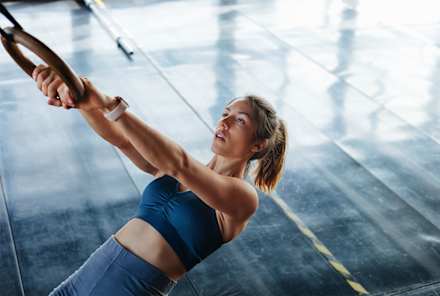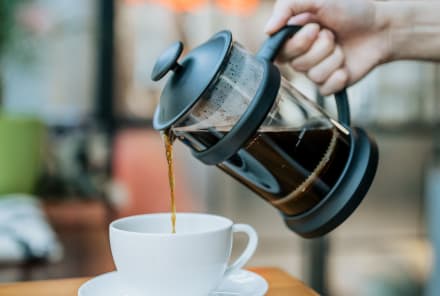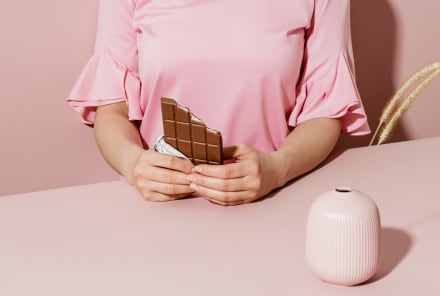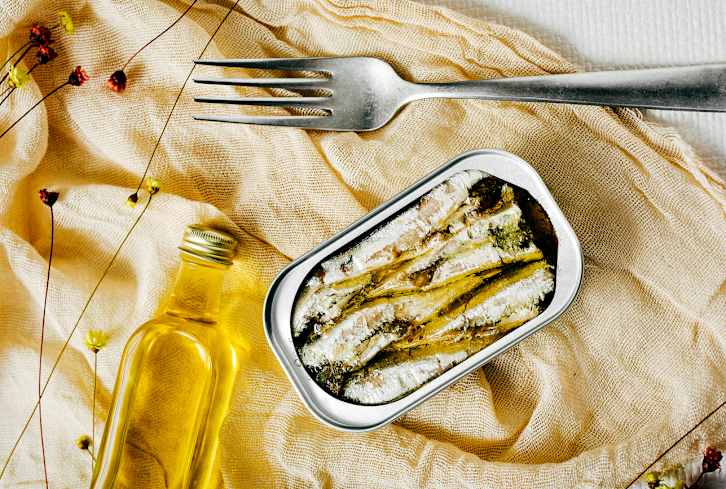Advertisement
This Is How Much Fish You Have To Eat To Get Enough Vitamin D


In a world of nutrition science and advice that seems riddled with conflicting opinions and open-ended questions, there's one fact you can hang your hat on: Vitamin D is important for a whole slew of body functions*—and almost none of us are getting enough. (An alarming 41% of American adults1 are clinically insufficient, meaning they're in the danger zone for straight-up deficiency—and the health consequences that come with it*.)
And though you might think your healthy eating habits excuse you from thinking too much about whether you're low in the sunshine vitamin, well, we've got a bit of a reality check for you: They don't.
You see, when it comes to vitamin D, the whole "food first" concept fails, says mbg director of scientific affairs Ashley Jordan Ferira, Ph.D., RDN. If we rely on natural food sources of vitamin D alone, 100% of Americans2 over the age of 2 fail to consume just 400 I.U. of vitamin D per day.
Just how much of a problem is that, really? A pretty big one. A little simple math based on landmark pharmacokinetic research3 reveals that we actually need a minimum of 3,000 I.U. per day to avoid vitamin D deficiency.* So, even if we all ate 400 I.U. of vitamin D per day, we'd still be less than 15% of the way there.
Plus, that's not even really the goal. Five thousand I.U. per day is what's truly necessary to achieve and maintain more optimal vitamin D status for life, according to collective science and clinical experts.*
Fish is supposed to be a good source of vitamin D.
In case you're still not sold on the fact that you're likely (OK, almost definitely) not getting enough vitamin D through food alone, allow us to paint a fishy picture for you.
Fish is touted as the best natural food source of vitamin D in the game. One tablespoon of cod liver oil provides 1,360 I.U. of vitamin D, while 3 ounces of farmed rainbow trout offers 645 I.U. and 3 ounces of sockeye salmon contains 570 I.U.
Compared to your next best vitamin D food sources—UV-exposed mushrooms (366 I.U. per serving; but that's vitamin D2, which is way less effective than D3) and fortified 2% milk (100 to 120 I.U. per serving)—fish really does seem impressive.
Unfortunately, though, it only gets you so far. Even if you just aim for that minimum of 3,000 I.U. per day, a serving of cod liver oil makes the most impact, packing 45% of that daily need. However, trout only gets you about 22% of the way there—and salmon just 19%.
And if you were to aim for the ideal 5,000 I.U. per day? You'd have to eat nine servings of sockeye salmon or eight servings of rainbow trout—or you could glug back 4 tablespoons of cod liver oil (which somehow feels almost realistic in comparison)—in order to hit the mark. And as Ferira reminds us, "Don't forget about the ocean contaminants here. Loads of daily fish servings is probably more mercury, dioxins, furans, and PCBs than you want in your day."
How to get enough vitamin D.
Since relying on food alone for vitamin D is an exercise in futility (sorry, the truth hurts!), a daily vitamin D supplement really is necessary.* For that supplement to actually do its job for most normal-weight adults, it needs to check a couple of important boxes. Namely, it needs to provide vitamin D3 instead of vitamin D2 (again, D2 is less effective) and pack 5,000 I.U. of it.
And since vitamin D is a fat-soluble vitamin, look for a supplement that is formulated with healthy fats, like mbg's vitamin D3 potency+, which contains a combination of organic extra-virgin olive, flaxseed, and avocado oils. (For more suggestions, check out this list of our top vitamin D supplement picks.)
If you are pregnant, breastfeeding, or taking medications, consult with your doctor before starting a supplement routine. It is always optimal to consult with a health care provider when considering what supplements are right for you.
3 Sources
- https://www.cambridge.org/core/journals/british-journal-of-nutrition/article/vitamin-d-deficiency-and-insufficiency-among-us-adults-prevalence-predictors-and-clinical-implications/44E436843510FE6BDE856D5BCB9C651F
- https://www.ncbi.nlm.nih.gov/pmc/articles/PMC6686054/
- https://www.ncbi.nlm.nih.gov/pmc/articles/PMC4571146/



















